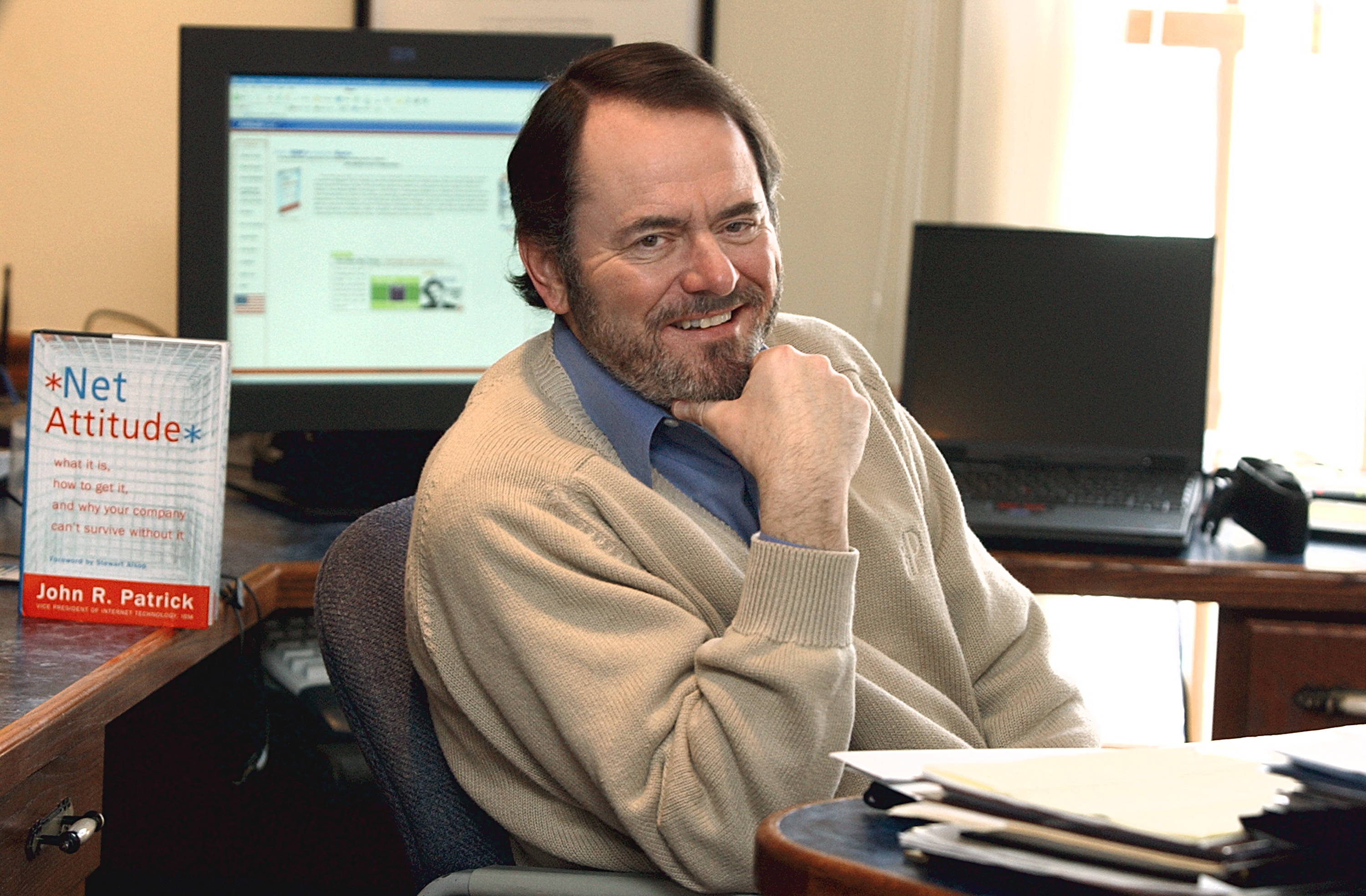One of the hot topics in medical discussions is the growing “invasion” of medical apps and mHealth technology, and the impact this influx is having on healthcare. Dr. John R. Patrick is the author of the book, “Health Attitude: Unraveling and Solving the Complexities of Healthcare.” In it, he speaks of this next generation of medicine and the shifts that it brings, such as empowering patients and enabling better communication with physicians.
Having his doctorate in healthcare administration, as well as holding degrees in electrical engineering, management, and law, Dr. Patrick is uniquely positioned to speak expertly on the development of these devices and their impact in healthcare. He took a moment to speak briefly with MDT about several of these aspects of the mHealth discussions, but for more insights, it would be best to review his latest book.

Dr. John R. Patrick is the author of the book, “Health Attitude: Unraveling and Solving the Complexities of Healthcare.”
Sean Fenske: Thank you for taking the time to speak with MDT about one of the newest facets of medical technology — mHealth. So let’s get right into it — how are medical apps impacting healthcare?
Dr. John R. Patrick: Medical apps give consumers the opportunity to participate more actively in the diagnosis and treatment of disease. Consumers will be collecting data about their health, enabling them to collaborate with their physicians. Apps represent the beginning of a transition from anecdotal medicine to data driven and personalized medicine.
Fenske: Are apps replacing traditional medical devices?
Dr. Patrick: Apps and devices are beginning to supplement traditional medical devices. AliveCor makes an FDA-approved attachment for the iPhone that can take a 30 second EKG. It is the equivalent of a three-lead EKG system. Hospitals and physicians typically use a standard 12-lead electrocardiogram, which provides a representation of the heart’s electrical activity. However, the AliveCor device is capable of detecting atrial fibrillation (Afib), a common heart disease in millions of people. I wrote about numerous other examples in Health Attitude: Unraveling and Solving the Complexities of Healthcare.
Fenske: What are the advantages of combining a medical app with a device technology?
Dr. Patrick: A device by itself is not very useful. The value of today’s devices is in the data they capture. Some people use a Fitbit to count their steps and simply look at the device at the end of the day. Others allow the Fitbit to record the data in the cloud that can then provide graphical summaries. The data can also provide awards and motivational emails when certain milestones are achieved. Some users like to share their data with friends and family, which can provide further motivational value. Studies have confirmed people who track their health and activity tend to be healthier.
Fenske: What are the new challenges involved with the development of that type of hybrid system?
Dr. Patrick: Adoption is always the challenge with any new technology. Some can’t wait to get it while others would prefer to be late followers. Security and privacy are always, and should be, of the highest priority. The entire category of mobile health (mHealth) will only be successful if it is secure and provides the level of privacy consumers expect.
Fenske: How has the FDA’s reaction been to the influx of healthcare apps to the market?
Dr. Patrick: The FDA views mHealth as a positive development that can improve the health of Americans. The agency also recognizes the importance of mHealth apps and devices being reliable, safe, and accurate, and therefore, has implemented appropriate regulation. So far, more than 150 apps and devices have been improved and many more are on the way.
Fenske: How are medical apps viewed by healthcare professionals?
Dr. Patrick: Some providers are, naturally, hesitant about mHealth. Their biggest concern is self-diagnosis. This should not be a surprise. When the web first began to become a source for medical information, healthcare professionals were quite skeptical. Today, many healthcare websites are considered an essential resource and respected by all.
Fenske: How will medical apps impact healthcare costs?
Dr. Patrick: Over time, mHealth will have a positive impact in reducing the high cost of American healthcare. A patient with an AliveCor mHealth EKG device acquired for $75 may not need as many visits to a cardiology. A parent using the Oto HOME iPhone device to have a peek into their child’s ear may obviate a trip to the doctor to confirm an ear infection. A $49 telehealth consultation from a mobile phone, such as recently introduced by Cleveland Clinic, can reduce the time, effort, and cost of a physician visit. Over time, the collection of data directly from consumer mHealth devices will enable population health techniques. For example, the development of clinics specific to the needs of certain communities may reduce the need for emergency medicine.
Fenske: How do apps enhance diagnostics?
Dr. Patrick: Diagnostics are all about data. Collecting data every 30 days from physician or laboratory visits will soon seem old-fashioned. Cedars-Sinai Hospital has integrated Apple Inc.’s Health app with the hospital’s electronic health record system for more than 80,000 patients. The implementation means when one of the hospital’s patients uses any of the hundreds of apps that create data for the Apple Health database, the data will be retrievable by the physicians who may treat the patients. For example, if a patient has congestive heart failure and uses an iPhone-compatible blood pressure device, a cardiologist can see the trend of the patient’s blood pressure. Not just when a doctor checks the blood pressure during a visit but rather, the trend defined by the patient. This includes the automatic feed of cardiac activity from the Apple Watch to the Health app.
Fenske: What’s ahead for this sector of the healthcare industry?
Dr. Patrick: Significant growth of mHealth is a certainty. There are several key drivers. One is the provisioning of data leading to personalized and population-based healthcare. Another is the big C-squared. Consumers have shown they will acquire new mHealth technologies. Convenience will provide the incentive. More and more tests will be possible with an mHealth app instead of the need to make an appointment and drive across town.
Fenske: Any other comments or thoughts you’d like to share?
Dr. Patrick: All of these topics are covered in more depth in Health Attitude: Unraveling and Solving the Complexities of Healthcare. While mHealth is critically important, as discussed, many other technological factors are entering the world of healthcare. 3D printing and robotics are making previously thought impossible cures possible. Big data and analytics are emerging as a new tool for the personalized cure of cancer. The book also describes the key policy issues in healthcare such as equity and access. Health Attitude outlines how all of these factors are combining to offer a more affordable and effective healthcare system.




